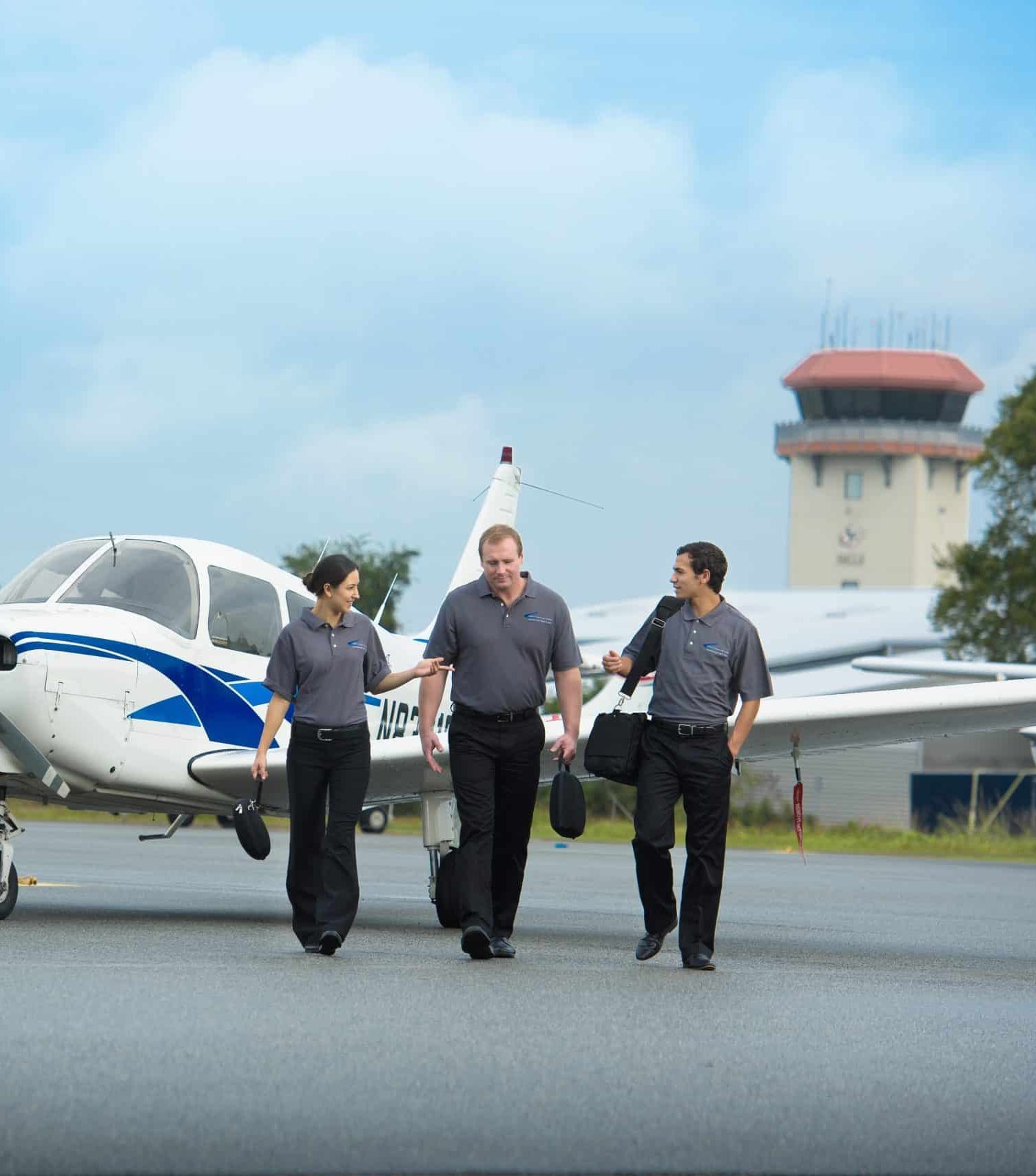The aviation industry, long synonymous with bustling airports and jobs on-site, is currently undergoing radical changes. Remote airline jobs are a revolution in the way industry is run thanks to the technological advances and a growing importance on flexibility. The positions permit professionals to work in the aviation industry without leaving their homes.
Remote Airline Jobs are on the Rise
In the past roles that required physical presence were the norm within the aviation sector. These included pilots, ground staff, and flight attendants. Digital technology has transformed the way airlines run. Many tasks that once required in-person interactions are now seamlessly handled online. From customer inquiries to data analysis, remote jobs for airlines have become a viable and efficient alternative.

Image credit: flightschoolusa.com
This is not just about ease of use. Remote work is an efficient option for airlines since it cuts down on overhead costs for office space. The ability to work from home alleviates the burden of commuting, promotes a healthier work-life balance and allows employees to explore global opportunities.
Roles in Remote Airline Jobs
Remote airline jobs encompass a wide array of roles which require a unique level of expertise and skills. A few of the most popular roles are
Customer Service Representatives (CSR) Ability to handle reservations, resolve questions from passengers, and resolve complaints in an instant makes it one of the most demanded jobs in the airline industry that is remote.
Revenue Management Analysts: These professionals use data to optimize ticket prices and revenue streams, working using advanced analytical tools from remote areas.
Marketing Specialists Airlines depend on digital marketing experts to craft campaigns and handle social media accounts and enhance the engagement of their customers on the internet.
Travel agents: These agents use technology to help clients organize their schedules and even book flights.
IT and Cybersecurity Professionals: Remotely performing critical tasks such as managing IT infrastructure, assisting airline systems and ensuring data protection is possible.
Benefits of Flights for Remote Airline Jobs
Remote airline jobs with flight perks are attractive because they allow for professional flexibility as well as traditional benefits associated with aviation. The reasons for these positions are becoming more popular:
Work-Life Balance: Remote assignments permit employees to adapt their schedules according to their personal and professional obligations. This leads to increased satisfaction with their jobs.
Cost Savings Working from home cuts down the expenses of your commute every day, which includes food and transport. This could translate into substantial savings.
Benefits of Travel: Many airlines provide remote employees with flight benefits like discounted or free travel. This does not only improve the satisfaction of employees but also gives unique opportunities to travel on your own.
Remote access : Remote positions enable professionals from different places to join the aviation industry that creates an diverse and inclusive workforce.
Airlines Remote Worker Skills Requirements
Certain skills are necessary to succeed in remote airline jobs.
Technical proficiency is vital to smooth remote operations.
Communication Skills: Effective written and oral skills in communication are essential to efficient teamwork.
Time management: Being able to manage tasks and deadlines on your own is essential to be successful in remote working environments.
Problem-Solving – Remote roles require quick thinking and agility to solve problems, even without immediate assistance.
How to Find Remote Airline Jobs
Finding a remote airline job requires a strategic approach to. Here are some tips to get you started:
Research Opportunities: Check out the career sites of airlines and remote job boards to identify opportunities that match your abilities and preferences.
Polish Your Resume by highlighting remote work experience, technical skills and relevant certificates.
Make use of Networking: Connect with professionals from the aviation sector on platforms such as LinkedIn to discuss potential opportunities.
Practice for virtual interviews: Practice answering questions that prove your capacity to work independently and handle remote tasks.
Remote Airline Jobs – The Future
Remote positions for airlines will remain very popular as airlines innovate. As communication technology, automation, and data analytics improve and become more efficient, it’s easier than ever for professionals to get work in the aviation industry from any location.
The growing trend of remote working is part of a bigger change in the workplace of today which emphasizes efficiency, flexibility as well as employee satisfaction. If you’re interested in a career in aviation, but without the constraints of traditional roles remote airline jobs are the possibility of a rewarding and sustainable career.
If they take advantage of these opportunities, professionals can take advantage of the benefits of both: helping to build one of the most dynamic sectors while reaping the advantages of remote work. Remote airline jobs that offer flight benefits provide the perfect option for anyone who wants to begin their career regardless of whether you’re an aviation pro or new to the field.